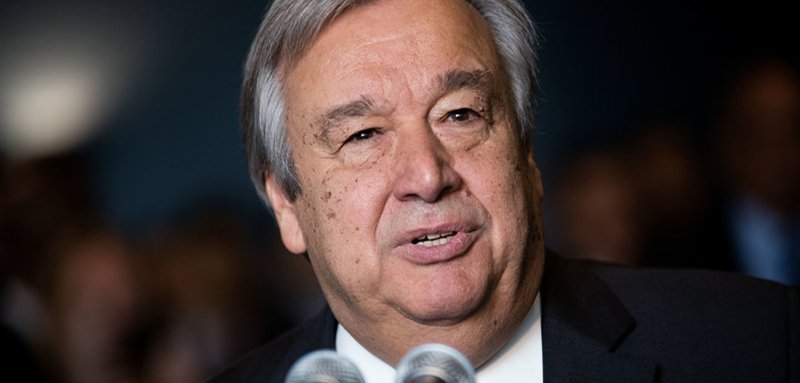Adapted from the sharing of Fr. Valentim Gonçalves, SVD
On October 13, 2016, the UN General Assembly appointed the former Prime Minister of Portugal, António Guterres, as the next United Nations Secretary-General, to succeed Ban Ki-moon when he steps down on 31 December. Mr. Guterres, aged 67, was Prime Minister of Portugal from 1995 to 2002, and the UN High Commissioner for Refugees from June 2005 to December 2015.
The community of Quinta do Mocho in the parish of Prior Velho, a suburban area of Lisbon, received the news of Mr. Guterres election as the highest diplomat in the world with joy and pride. Fr. Valentim Gonçalves SVD, a former parish priest of Prior Velho , recalls the unexpected and rather unusual move of the former Prime Minister of Portugal to offer voluntary services in the area. Fr. Valentim remembers when he first met Guterres,who was then Secretary General of the Socialist Party. Along with Fr. Valentim he visited the shantytown where he was working.
After some years Fr. Valentim was asked by one of his friends if he was willing to accept someone who just left the government office to do some voluntary service. Little did he know that the person wanting a slot to reach out in the neighborhood was the former Prime Minister Guterres. Twice a week Guterres joined a group of teachers and he taught mathematics to Portuguese-speaking African students who were about to enter the University. His presence was appreciated quickly by the students who were impressed by his discreet, simple and caring manner. His regular presence in the parish’s neighborhood and Casa de Cultura further created this privileged friendly tie with an important figure who wanted to be treated just like anybody else. Guterres was in Quinta do Mocho as a volunteer, and he was clear in his position that this was not to be treated as a piece for media attention. As we say “he was someone working on the sidelines.”
In his acceptance speech as the new Secretary-General of the United Nations, Guterres underlined that alleviating the suffering of the vulnerable people, in particular the refugees and those in conflict zones, as well as gender equality, would remain top priorities for him during his tenure. The people of Prior Velho and Fr. Valentim believe beyond any doubt that this man of discreet acts of charity and willingness to reach out will indeed deliver on his words. Indeed, they also agreed with what the outgoing Secretary General of the UN, Ban Ki-moon, said: “He is a wonderful choice to steer this Organization as we build on the progress of the past decade while addressing the insecurity and uncertainties of today's world.”
Fr. Valentim, recalling the occasions he interacted with Guterres, said, “His attitude was in line with his personality, someone sensitive to others, and to social issues. So his mission at the United Nations, as High Commissioner for Refugees and now as UN Secretary General was framed entirely in his profile as someone with a very profound sense of humanity.”
As we continue to recognize the importance of the laity as our collaborators, we can never realize the full significance of opening our doors to them. Never did Fr. Valentim nor the future students of the different universities , think that the man who taught mathematics in their poor neighborhood at late hours would some day become a very vital instrument to steer the destiny of today’s world as the Secretary- General of the United Nations.









